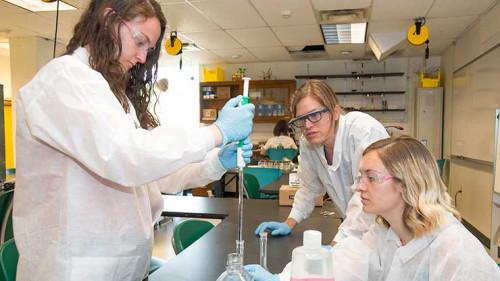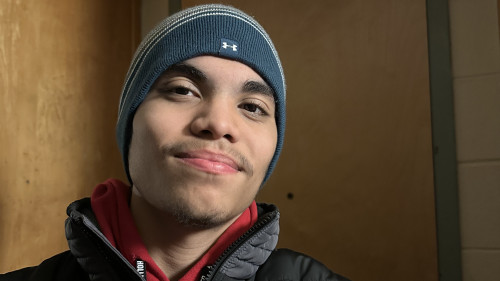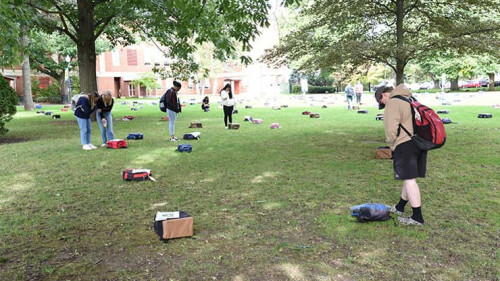
By Mike Clemens '15
The situation in the Middle East is a topic that is always in the news, but last week Siena students got an insider’s perspective when author and journalist Stephen Kinzer delivered an address titled “The Dulles Brothers: Implications for Foreign Policy in Iran and Beyond.”
Kinzer is an award-winning journalist and author who spent more than 20 years of his career as a foreign correspondent for The New York Times. Kinzer’s latest book, “The Brothers: John Foster Dulles, Allen Dulles, and Their Secret World War,” whose subject matter comprised a majority of his address, explores how the actions of these two men in the early 1950s are still impacting U.S.-Iranian relations and the state of the Middle East today.
“It’s very important for my students to understand where the problems in the Middle East today have come from,” said Vera Eccarius-Kelly, Ph.D., professor of political science. “It isn’t enough to just look at what is happening in that region today. These problems are much more complex.”
In his address, Kinzer challenged the audience of students and faculty to look at international politics through a new lens. Specifically, he made a case that current U.S.-Iranian relations were muddied by American covert action under the Dulles brothers, who served as Secretary of State and Director of the CIA during the Eisenhower administration.
“It is dangerous to see the world from only one perspective,” Kinzer said. “We often try and repress history that does not align with how we want to see ourselves, but what we should do is acknowledge our shortcomings and learn from them.”
Siena students were particularly impressed with Kinzer’s unique approach to sensitive issues.
“I think that his theory of interconnectedness is fascinating,” said Andrew Lang ’15, president of Siena’s Political Science Society. “Kinzer really made clear how even small events on the world stage can snowball and become much larger problems.”
Much of Kinzer’s address was also spent working through his belief that the U.S. needs to forge a new relationship with Iran. He cited a number of issues on which he thinks the two nations could find common ground, including security and counter-terrorism interests.
“You don’t hear many people who are open to building a stronger relationship with Iran,” said Bryan Kelly ’14. “But it is interesting to hear about the things that we do have in common and that, when it comes down to it, that we (U.S. and Iran) could make good allies.”
But even more important than these lessons, Kinzer’s address left students with life and career lessons.
“For me, I think that this address really spoke to the need to be open to new ideas and to different ways of life,” said Pamela Townsend ’14. “That’s good advice no matter what situation you find yourself in.”



